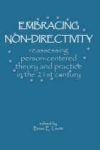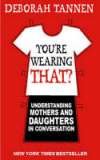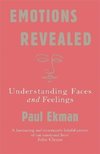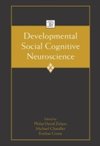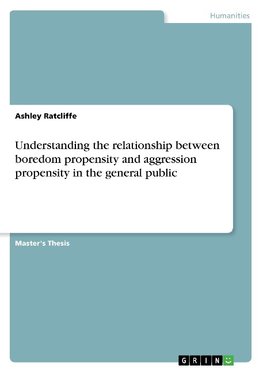
-
 Anglický jazyk
Anglický jazyk
Understanding the relationship between boredom propensity and aggression propensity in the general public
Autor: Ashley Ratcliffe
Master's Thesis from the year 2016 in the subject Psychology - Forensic Psychology, Penal System, grade: 2.1 (Merit), The University of Liverpool, course: MSc Forensic Psychology & Criminal Investigations, language: English, abstract: Aggression is a common... Viac o knihe
Na objednávku, dodanie 2-4 týždne
25.92 €
bežná cena: 28.80 €
O knihe
Master's Thesis from the year 2016 in the subject Psychology - Forensic Psychology, Penal System, grade: 2.1 (Merit), The University of Liverpool, course: MSc Forensic Psychology & Criminal Investigations, language: English, abstract: Aggression is a common characteristic of human behaviour, which has shaped and impacted societies, politics, cultures of nations and billions of people (Mitoma, 2014). Defined as a state of feeling bored (Oxford Dictionary, 2015), which itself is vague, there has been little research done to understand the relationship between boredom propensity and aggression. In fact, the most recent studies were completed in 1997 and 2004, justifying the need for further, more relevant, current research in regards to the subject.
Theories, such as Fenichel, (1951), suggest that boredom is the internal manifestation of anger, which indicate that there is a significant correlation between boredom and aggression. Considering the lack of agreement as to the definition of boredom, which it has been suggested by Melton & Schulenberg, (2009), is a contributing factor in the lack of research into boredom, the relationship between boredom and aggression is one which could provide insights and help define or adjust current proactive and reactive activities in wide variety of areas including work performance Bruursema, Kesler, & Spector, 2011), safe driving (Dahlen, Martin, Ragan, & Kuhlman, 2005), and relationships (Elpidorou, 2014), for example.
This correlational and cross sectional, quantitative research aimed to establish if there is a relationship between Boredom Propensity (BP) and Aggression Propensity (AP), in the general public, and used multivariate regression testing. Participants were volunteers (n = 102), recruited from social media, as well as professional and personal contacts, who completed the Boredom Propensity Test (Sundberg, & Farmer, n.d) and the Aggression Questionnaire, (Buss and Perry, 1992). Whilst not attempting to define the cause, results (independent of age or gender) indicated that there is a high moderate, positive correlation between BP and AP. Results also show that BP can be predictor of two specific aspects of aggression, Physical Aggression (PA) and Hostility (H); however, is less reliable in predicting verbal aggression (VA) and anger (A).
- Vydavateľstvo: GRIN Verlag
- Rok vydania: 2017
- Formát: Paperback
- Rozmer: 210 x 148 mm
- Jazyk: Anglický jazyk
- ISBN: 9783668280984


